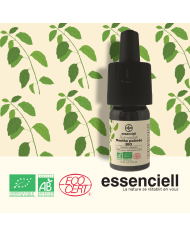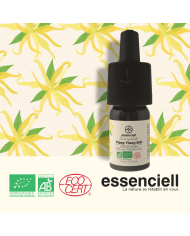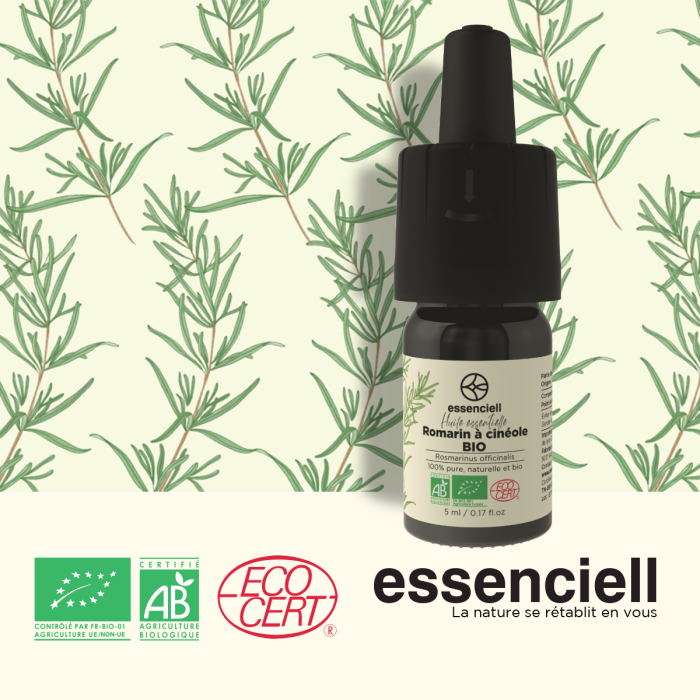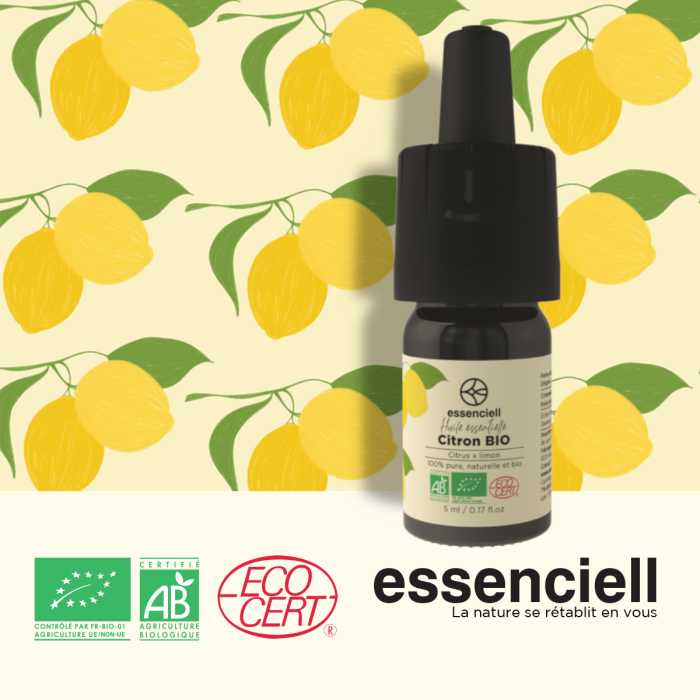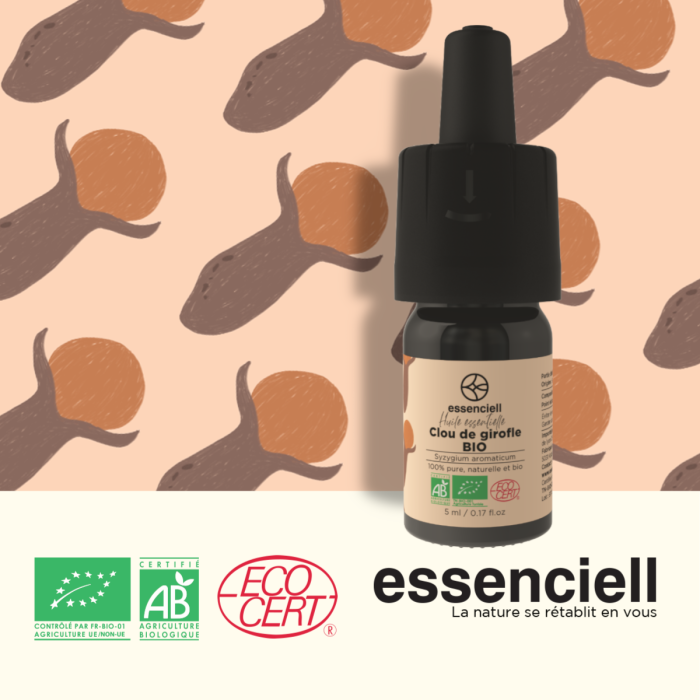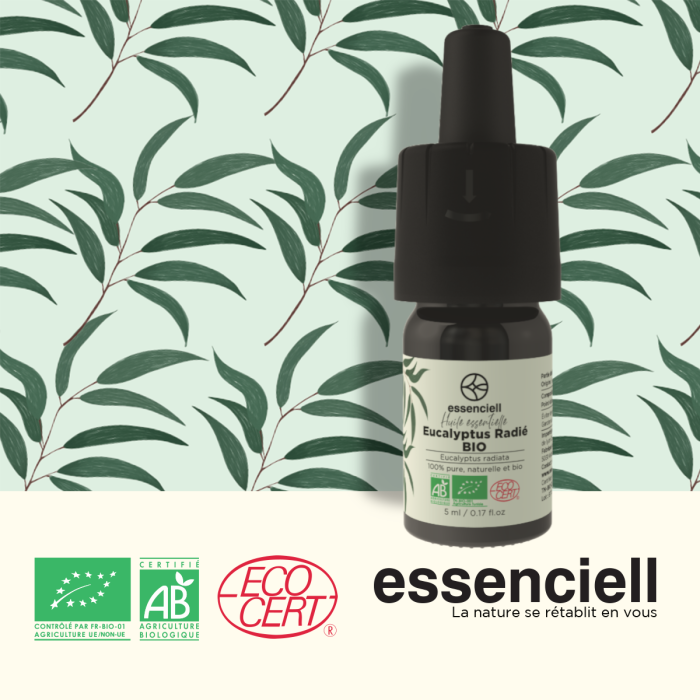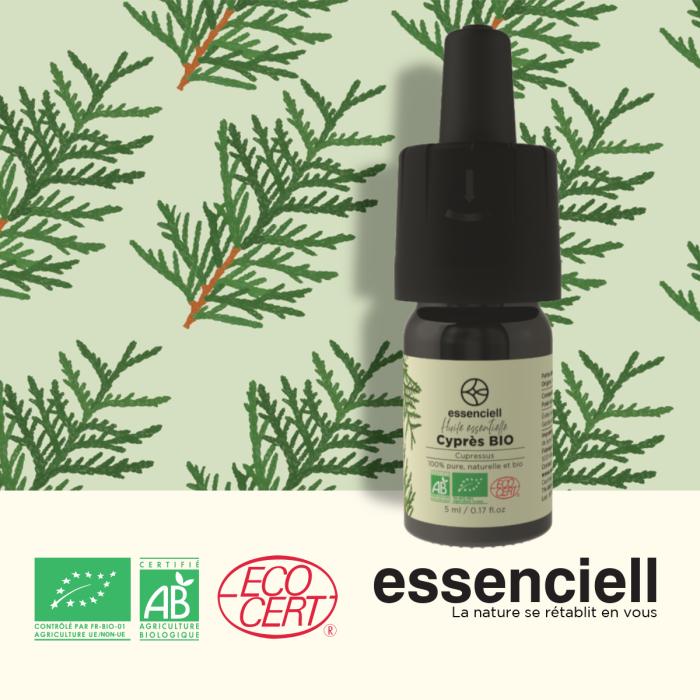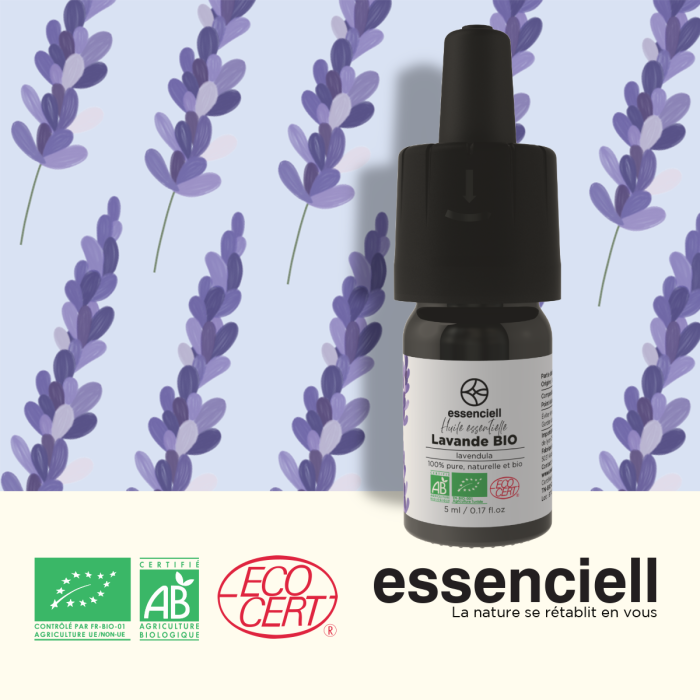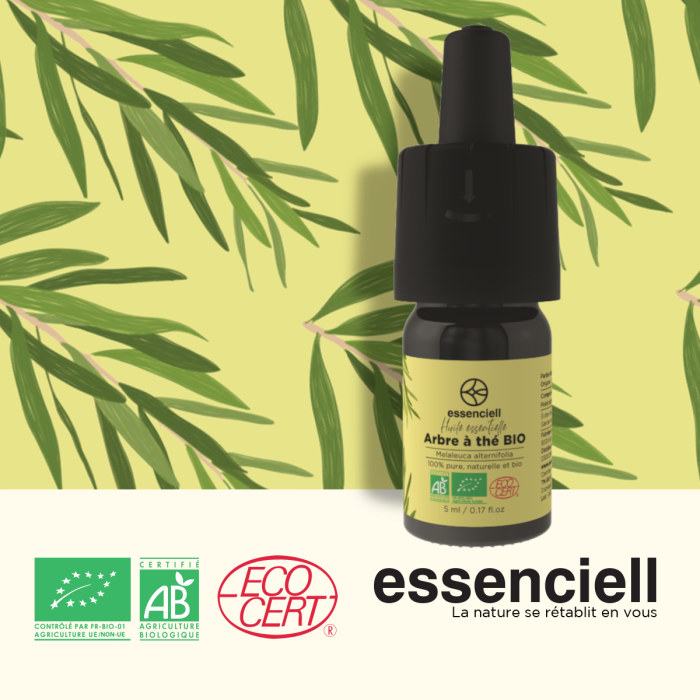Organic Wild Rosemary Cineole
Organic rosemary oil comes from wild harvesting and is antiseptic, antirheumatic, antispasmodic and healing. It is a very fine oil with a powerful smell. It is also a diuretic, detoxifying oil and an excellent heart and vein tonic.
Rosemary oil is antiseptic, antirheumatic, antispasmodic and healing. It is a very fine oil with a powerful smell. It is also a diuretic oil, detoxifying, and an excellent heart and vein tonic.
Organic Rosemary oil is known as an intellectual tonic, it is used in case of lack of concentration, fatigue, overwork. It is also a very famous oil to accompany winter episodes. In cosmetics, this oil is used for hair care and skin care.
Quality:
• 100% organic
• 100% pure and natural essential oil, undiluted and not rectified.
• Botanically and Biochemically Defined Essential Oil (BBDE).
• Not mixed and chemotyped
• The essenciell oils have been rigorously selected and controlled on the organoleptic and physico-chemical levels.
Production date: .......... (Lot......)
Best used before the end of: ............. (Lot......)
Density: ............
Flash point: .........
Identification
• Country of origin: Tunisia
• Production process: Complete distillation by steam distillation.
• Distilled organ: Twigs
• Botanical name:Rosmarinus officinalis L. (cineoliferum)
• Culture: Wild harvest from an organic cultivation, certified by Ecocert etc.
• Packaging: The formats 10 ml to 100 ml are delivered in amber glass bottles with an eye dropper.
Control
Guaranteeing the quality and traceability of our essenciell oils and our raw materials is at the heart of our concerns. We carry out routine controls on each batch and more thorough monitoring controls, chromatographic analysis is carried out in an accredited laboratory.
Chromatography: Chromatography is a separative physicochemical method used to identify the different substances in a mixture. The chromatograph is a device used to perform certain chromatographies. The chromatogram is the record or the diagram obtained by chromatography.
Organoleptic properties:
Appearance: Clear liquid.
Color: Pale yellow, colourless.
Odor: aromatic, fresh, kinetic, powerful
Composition:
To be completed
Stability in time: ..............
Recognized properties:
• Mucolytic, anti-catarrhal, antibacterial, expectorant
• Powerful bactericide (staphylococcus aureus, streptococcus, white staphylococcus)
• Effective antifungal, analgesic
• Anti-wrinkle, skin and hair revitalizer
• Antioxidant, acts against cell ageing
Indications:
• Respiratory tract infections, chest cold, bronchitis, otitis, sinusitis
• Candidiasis, cystitis
• Chronic fatigue, physical and intellectual overwork, asthenia
• Hair loss, tired hair, dandruff
• Dyspepsia, difficult digestion, enterocolitis
• Hypotension
Uses:
Food use of organic cineole rosemary oil: To flavour your dishes and preparations, simply add 1 to 2 drops of rosemary oil (meat, poultry, sauces, ratatouille, grilled meat, fried potatoes, etc.)
Skin application: Mix 4 to 6 drops of rosemary oil with 5 drops of lavender oil, or combine a few drops of rosemary oil, a few drops of peppermint oil with a teaspoon of vegetable oil, then gently rub the affected areas, this preparation helps to relieve muscle pain.
Again, to treat an ear infection, simply mix 2 drops of rosemary oil with 2 drops of niaouli oil and massage around the ear.
Massage use: In case of bronchitis, mix 1 to 2 drops of rosemary oil with 4 to 6 drops of vegetable oil, apply to the chest and upper back, 3 times a day until significant improvement.
In case of overwork or chronic fatigue, mix 1 to 2 drops of rosemary oil with a few drops of vegetable oil (sweet almond oil), massage the soles of the feet and the inside of the wrists.
Use as a vapor: to calm rhinitis or sinusitis, mix 4 to 6 drops of rosemary oil with 4 to 6 drops of eucalyptus oil, then diffuse for a few days.
Use as an inhalation: In case of respiratory infections, asthma or cough, mix 2 drops of rosemary oil with 2 drops of Scots pine oil in a bowl of hot water.
Other uses: This oil stimulates hair growth, simply mix a few drops of rosemary oil, 10 to 15 drops of castor oil with 30 to 40 drops of coconut oil, apply this preparation to your hair.
Moisturizing face mask, mix a few drops of rosemary oil with a tablespoon of aloe vera gel, add the mixture to a bowl, then gently apply to the face every day, leave for 15 minutes.
Anti-acne mask, mix 2 drops of rosemary oil, 2 drops of tea tree oil and 2 drops of lemon oil with 2 tablespoons of green clay and 1 tablespoon of aloe vera, mix and apply to clean skin, leave for 10 minutes then rinse, for best results follow with a moisturiser, use this preparation once a week.
Tan removal, mix a few drops of rosemary oil with 2 tablespoons of yoghurt and half a teaspoon of turmeric, in a bowl and apply to the face, leave for 30 minutes.
Warning: essential oils should not be used pure, it is essential to dilute them in a vegetable oil.
Synergy with the following essential oils: Scots pine, eucalyptus radiata, lemon, ravintsara, lavender, juniper, cypress...
Conservation: Keep your oils in a cool and dry place away from light and heat sources. Do not store the oils in hot, bright or humid places, such as the bathroom, near a stove (or fireplace), on a windowsill, in sunny places, and anywhere where there are temperature variations.
Precautions for use:
• Keep out of reach of children.
• Do not use essential oils during pregnancy or while breastfeeding.
• If applied to the skin, dilute in a vegetable oil.
• Essential oils should not be applied to the eyelids, around the eyes, in the ears or on mucous membranes. They should not be applied pure to the skin either, except in the case of local treatment of a skin blemish.
• Without the advice of a health professional, essential oils should not be taken during a treatment. There are risks of interactions.
• Ask for medical advice before use, especially in case of medication or chronic illness (asthma, epilepsy, hormone-dependent pathologies...).
• As a general rule, always do a test application of your preparation, in the fold of the elbow, at least 48 hours before using it.
• In case of doubt, ask your pharmacist or your doctor trained in aromatherapy for advice.
All indications and properties available on our website are taken from bibliography, websites and scientific reference books and/or objectivation tests. This information is given for information purposes only, it does not constitute medical information, nor does it engage our responsibility.
Data sheet
| Packaging | 100 ml |
|---|---|
| Production date | August 2022 |
| To be used preferably before the end | January 2026 |
| Country of origin | Tunisie |
| Procédé d’obtention | Complete distillation by steam distillation. |
| Distilled organ | twigs |
| Botanical name | Rosmarinus officinalis L. (cineoliferum) |
| Culture | Organic, certified! Ecocert etc. |
Reviews
No customer reviews for the moment.



